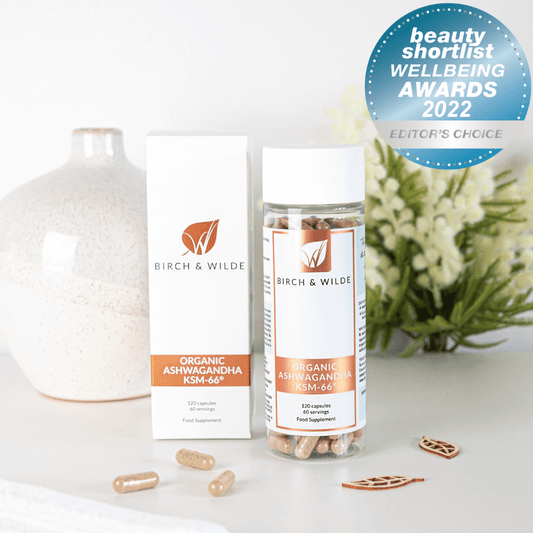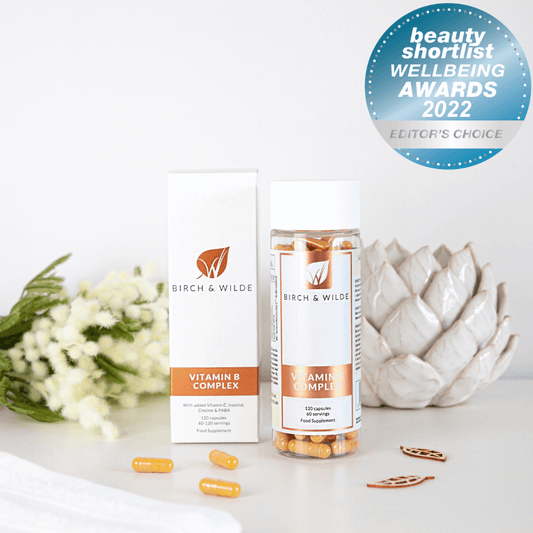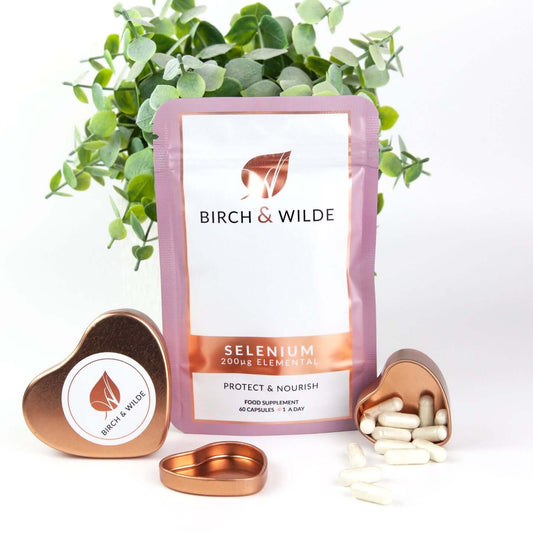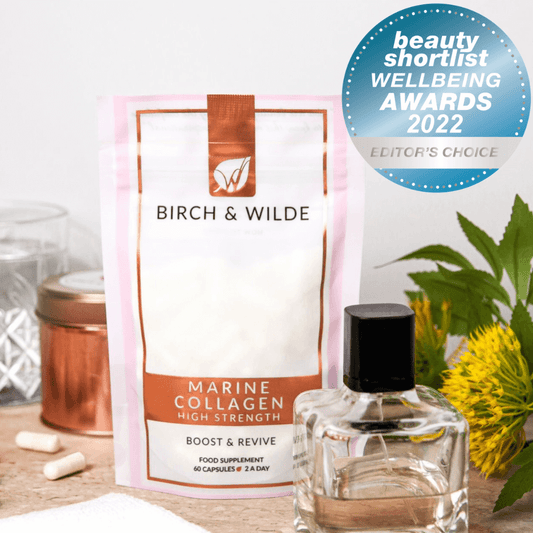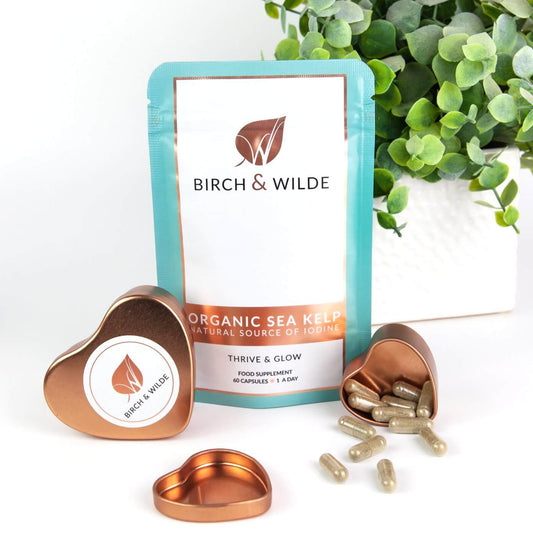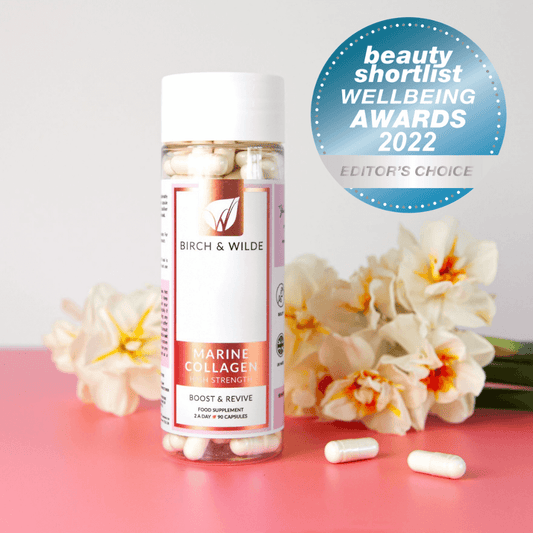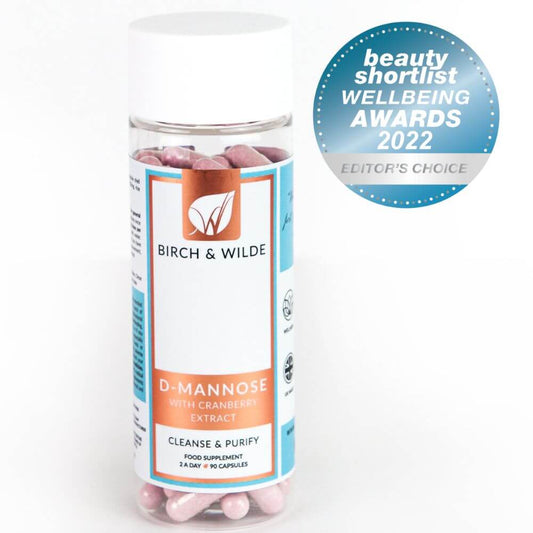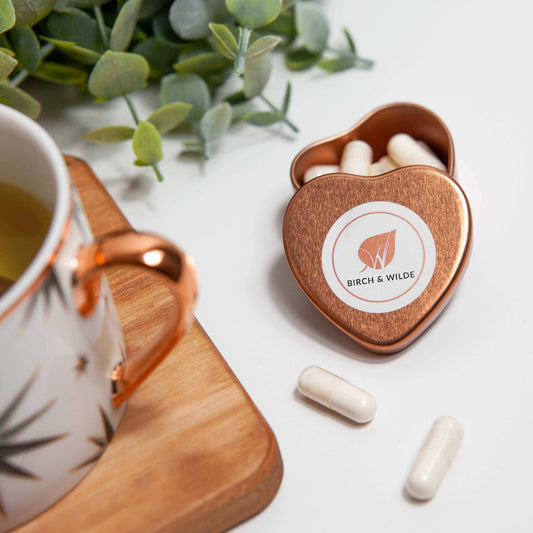Winter Beauty - Love your Skin, Hair and Nails from Within

Winter, with all its joys and celebrations, brings one problem - Winter skin, hair and nails! Although you might be perfectly cosy in your centrally heated house, your skin and hair are not fans of the central heating. Skin becomes dry and chapped, and hair and nails become dull and brittle. Fortunately, however, there are some things that can be done to nourish these areas from the inside (and really easily!).

Get enough omegas – Omega fats are essential for the health of the skin. They are directly incorporated into the skin cell membrane. Omega fats are flexible fats at room temperature and when incorporated into skin cells help the cells to flexible and prevent cracking and drying. The most important omega fat for the skin is omega 3 fats. These fats can be taken as a supplement and consumed in a variety of foods such as oily fish, walnuts chia seeds and algae.
Hydrate properly – Proper hydration is about more than just drinking. Although 1.5 to 2 litres of water per day is recommended, it is also important to ensure you have enough electrolytes in your body. Electrolytes include sodium, potassium, chloride and magnesium and are responsible for controlling the water balance in and out of cells, in other words how hydrated your cells are. Most people have enough sodium in their diet, if not too much, and individuals who consume the recommended 7 portions of vegetables and fruit should have enough potassium. The Electrolyte where most individuals fall short on is magnesium. This is found in green leafy vegetables, nuts, seeds and wholegrains.

Get enough protein and collagen – Protein is the building blocks for all cells in the body. The skin and hair cells have a fast rate of turnover and growth, meaning they require more protein than other cells in the body. Increasing protein in the diet when deficient can significantly increase the strength of hair and skin. Collagen is a type of protein that provides the major structural component of the skin. It is the collagen in skin that gives it its flexibility and bounce and helps to protect against wrinkles. Collagen can be found in the diet from bone broth, but you may find it more convenient to collagen supplement to ensure you are getting a daily dose. The scalp also needs adequate protein to create strong, thick and luscious hair.
Limit sugar intake – Refined sugars rob the body of nutrition. They use up a lot of nutrients for their processing and do not give anything back apart from empty calories. Excess sugar in the diet makes the skin look dull and the scalp flakey. Remove the sugar and replace it with healthy snacks that will actively add nutrients to the body.
Get your beauty sleep – Winter might be party season, but make sure you get your beauty sleep. Sleep is a restorative time for the body and a lack of sleep decreases the integrity of the skin gives it a dull appearance.

Reduce inflammation – Low grade systemic inflammation caused by factors such as smoking, drinking alcohol, sugar consumption and stress takes it toll on the skin. Low-grade systemic inflammation typically appears on the skin as red, inflamed skin, or enlarged pores. If you have these skin issues and you do not drink, smoke or consume sugar, you should investigate possible food intolerances which could be contributing towards underlying inflammation.
Get active – Being active is important for a number of reasons. Exercise increases blood flow and nutrient delivery to the skin cells and the scalp, promoting health skin and hair growth. It also increases blood flow to the liver which promotes proper detoxification. Poor detoxification can lead to the body pushing toxins out through the skin, creating a dull look.

Get your guts moving – Having a poo at least once a day is important for skin health. Having a poo in the body’s way of removing toxins from the body. When we are not regular, the body pushes the toxins out through the skin contributing to dull, inflamed skin and acne. If you are struggling to have a poo frequently, try increasing fibre intake, drinking more and taking a probiotic supplement.










